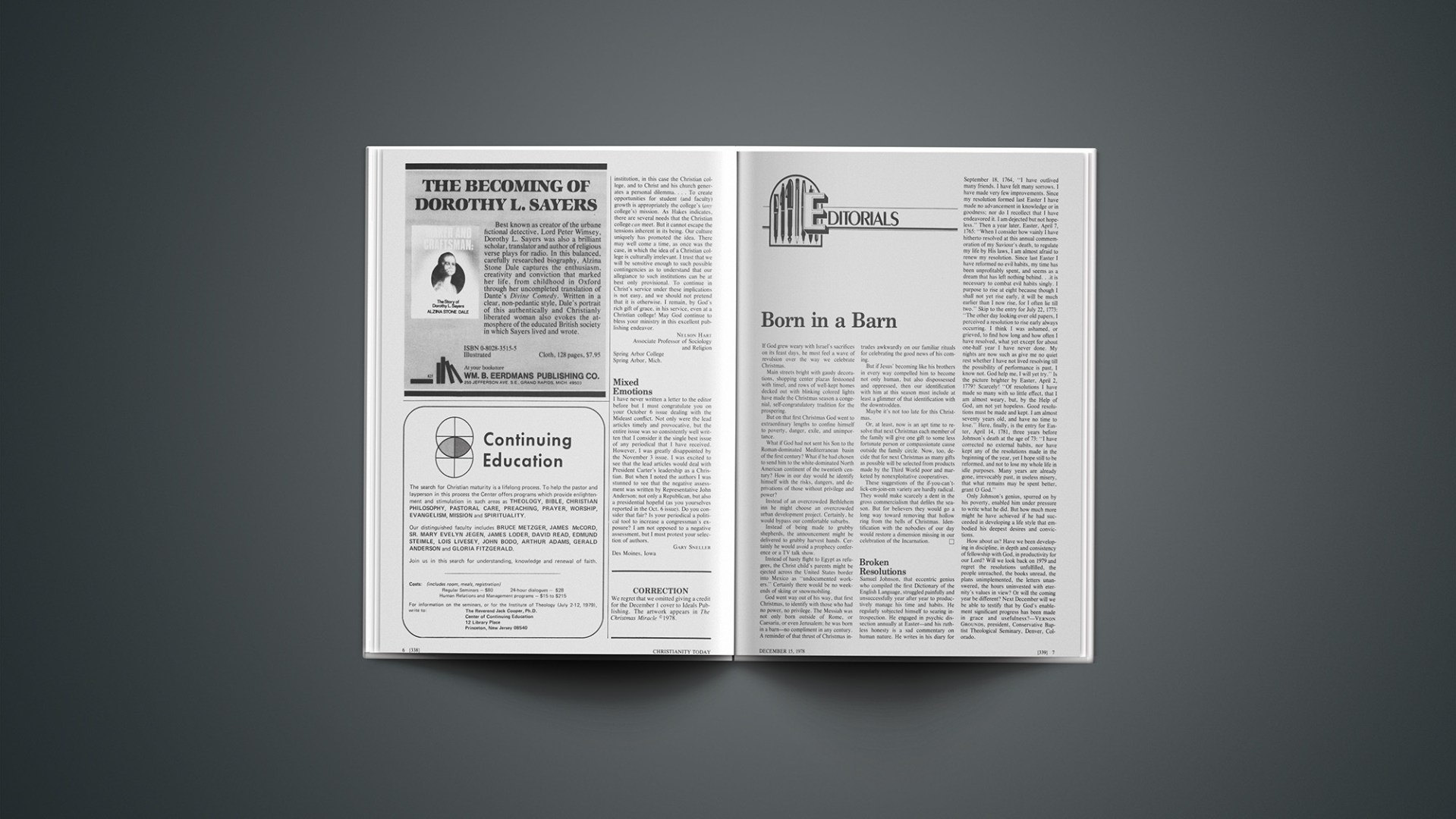Broken Resolutions
Samuel Johnson, that eccentric genius who compiled the first Dictionary of the English Language, struggled painfully and unsuccessfully year after year to productively manage his time and habits. He regularly subjected himself to searing introspection. He engaged in psychic dissection annually at Easter—and his ruthless honesty is a sad commentary on human nature. He writes in his diary for September 18, 1764, “I have outlived many friends. I have felt many sorrows. I have made very few improvements. Since my resolution formed last Easter I have made no advancement in knowledge or in goodness; nor do I recollect that I have endeavored it. I am dejected but not hopeless.” Then a year later, Easter, April 7, 1765: “When I consider how vainly I have hitherto resolved at this annual commemoration of my Saviour’s death, to regulate my life by His laws, I am almost afraid to renew my resolution. Since last Easter I have reformed no evil habits, my time has been unprofitably spent, and seems as a dream that has left nothing behind … it is necessary to combat evil habits singly. I purpose to rise at eight because though I shall not yet rise early, it will be much earlier than I now rise, for I often lie till two.” Skip to the entry for July 22, 1773: “The other day looking over old papers, I perceived a resolution to rise early always occurring. I think I was ashamed, or grieved, to find how long and how often I have resolved, what yet except for about one-half year I have never done. My nights are now such as give me no quiet rest whether I have not lived resolving till the possibility of performance is past, I know not. God help me, I will yet try.” Is the picture brighter by Easter, April 2, 1779? Scarcely! “Of resolutions I have made so many with so little effect, that I am almost weary, but, by the Help of God, am not yet hopeless. Good resolutions must be made and kept. I am almost seventy years old, and have no time to lose.” Here, finally, is the entry for Easter, April 14, 1781, three years before Johnson’s death at the age of 73: “I have corrected no external habits, nor have kept any of the resolutions made in the beginning of the year, yet I hope still to be reformed, and not to lose my whole life in idle purposes. Many years are already gone, irrevocably past, in useless misery, that what remains may be spent better, grant O God.”
Only Johnson’s genius, spurred on by his poverty, enabled him under pressure to write what he did. But how much more might he have achieved if he had succeeded in developing a life style that embodied his deepest desires and convictions.
How about us? Have we been developing in discipline, in depth and consistency of fellowship with God, in productivity for our Lord? Will we look back on 1979 and regret the resolutions unfulfilled, the people unreached, the books unread, the plans unimplemented, the letters unanswered, the hours uninvested with eternity’s values in view? Or will the coming year be different? Next December will we be able to testify that by God’s enablement significant progress has been made in grace and usefulness?—VERNON GROUNDS, president, Conservative Baptist Theological Seminary, Denver, Colorado.










